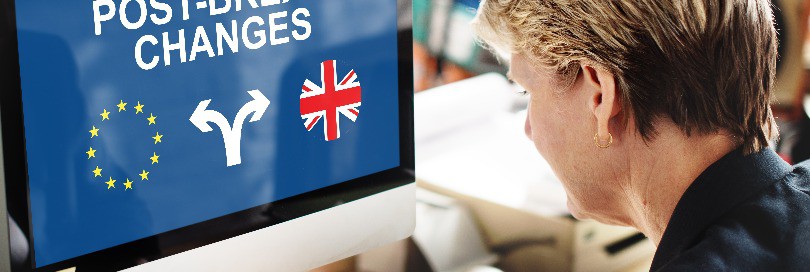- Compliance
Three pitfalls to avoid in 2022 when moving goods between the EU and the UK

Adobe Stock
- Copyright of the journal: CC Learning, UAB

Adobe Stock
To access the full text please
This article looks at how your business activities, trading relationships, internal controls, and interactions with customs and other authorities can impact your risk assessment and, in turn, … the extent of customs controls. It also offers practical insights into how companies can lower their customs risk profile and reduce the level of scrutiny customs authorities apply to their operations.
Boryana Peycheva
This article looks at how your business activities, trading relationships, internal controls, and interactions with customs and other authorities can impact your risk assessment and, in turn, the extent of customs controls. It also offers practical insights into how companies can lower their customs risk profile and reduce the level of scrutiny customs authorities apply to their operations.
Boryana Peycheva
Editor's note: Continuing the theme of the previous article (see 'Discussion of the most important AI risks'), the author looks at how the EU is trying to reconcile worker protection, innovation … and global AI competitiveness while taking full account of citizens' concerns. The author discusses a recent opinion of the European Economic and Social Committee (EESC) and shares his findings.
Dr Ramūnas Šablinskas
Editor's note: Continuing the theme of the previous article (see 'Discussion of the most important AI risks'), the author looks at how the EU is trying to reconcile worker protection, innovation and global AI competitiveness while taking full account of citizens' concerns. The author discusses a recent opinion of the European Economic and Social Committee (EESC) and shares his findings.
Dr Ramūnas Šablinskas
With AI advancing rapidly, concerns about its impact on jobs and decision-making are growing. In this engaging interview, Enrika Naujoke and Frank Heijmann explore how AI is transforming customs, … the balance between human judgment and machine efficiency, and why a strong foundation in education might be essential for navigating the AI era.
Frank Heijmann , Enrika Naujokė
With AI advancing rapidly, concerns about its impact on jobs and decision-making are growing. In this engaging interview, Enrika Naujoke and Frank Heijmann explore how AI is transforming customs, the balance between human judgment and machine efficiency, and why a strong foundation in education might be essential for navigating the AI era.
Frank Heijmann , Enrika Naujokė
The EU Artificial Intelligence (AI) Act was created to manage the most important risks associated with the development and adaptation of this technology. Let’s take a look at the most discussed … risks associated with AI, as identified by various internet commentators, experts and members of the public.
Dr Ramūnas Šablinskas
The EU Artificial Intelligence (AI) Act was created to manage the most important risks associated with the development and adaptation of this technology. Let’s take a look at the most discussed risks associated with AI, as identified by various internet commentators, experts and members of the public.
Dr Ramūnas Šablinskas
Whenever the topic of the Trade and Cooperation Agreement (TCA) review comes up, the Pan-European Mediterranean (PEM) origin cumulation zone is one of the topics mentioned as potentially in scope. … Recently, several reports and organizations have included rejoining PEM as one of the recommendations for the new Government. Rejoining PEM is indeed one of the steps that could improve market access for products from all industries that could be done within the current format of the TCA. It could also be done without changing the essential character of the relationships, i.e. one based on a simple and fairly basic trade agreement.
Dr Anna Jerzewska
Whenever the topic of the Trade and Cooperation Agreement (TCA) review comes up, the Pan-European Mediterranean (PEM) origin cumulation zone is one of the topics mentioned as potentially in scope. Recently, several reports and organizations have included rejoining PEM as one of the recommendations for the new Government. Rejoining PEM is indeed one of the steps that could improve market access for products from all industries that could be done within the current format of the TCA. It could also be done without changing the essential character of the relationships, i.e. one based on a simple and fairly basic trade agreement.
Dr Anna Jerzewska
* Mandatory fields
By signing up you agree to the Terms of Use and Privacy Policy
or Sign up
Already have an account? Login here
Already have an account? Login here
or Sign up
Comments ()
To post a comment you need to